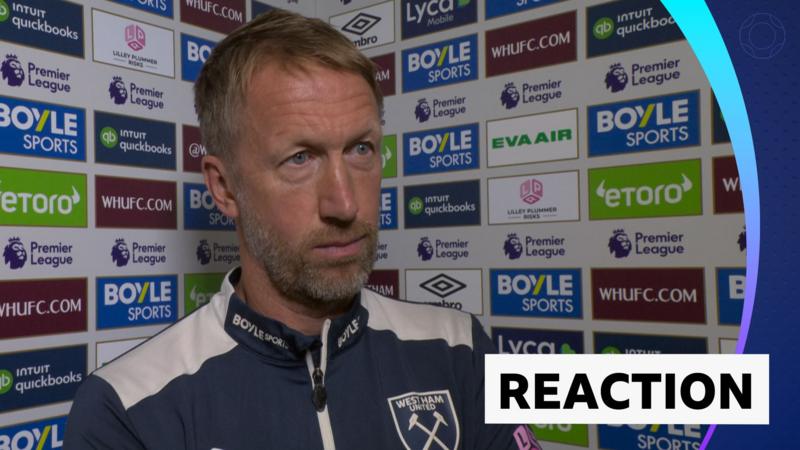Potter Admits: Building a New Team is a Tough Challenge!



In the wake of another disheartening defeat at the London Stadium, this time a 3-0 rout at the hands of Tottenham Hotspur, West Ham United's manager Graham Potter has candidly expressed the challenges he faces in embedding a fresh identity into the team. The loss, unsurprisingly, stirred up a wave of dissatisfaction among fans and raised serious questions about the direction the Hammers are taking under Potter's guidance.
Since taking over the helm at West Ham, Potter has been tasked with a monumental challenge: to transition the club from their traditional robust playing style to a more possession-based, dynamic system. The shift, although visionary, has not been smooth. Patterns on the field suggest that the players are still grappling with the tactical nuances required for this transformation. The promising signs of fluidity and aggression have been all too sporadic, overshadowed by moments of confusion and vulnerability, particularly in defense.
The game against Tottenham highlighted several of these issues. West Ham, in their attempt to maintain possession and build from the back, often found themselves outpaced by Tottenham's swift counter-attacking style. The Spurs' first goal came from such a break, underscoring the struggles West Ham faces in balancing offensive ambition with defensive solidity.
Potter, in his post-match remarks, acknowledged the difficulties in fostering this new ethos among his squad. "It's a complex process," he noted, "to change the foundational playstyle of a team. It's more than just tactics; it's also about mindset and adapting physically to the demands of the style we want to implement."
The vision for West Ham under Potter is clear: to become a team that can control games and impose its style on opponents. However, the transition phase is proving to be a tough nut to crack. Injuries haven't helped the cause either, with key players missing crucial matches, disrupting Potter's plans for consistency and cohesion.
Moreover, there is the added pressure of expectations. West Ham's recent successes under previous managers have elevated the aspirations of fans and the board. There's a palpable sense of urgency in wanting to see results that not only match but surpass previous achievements. Potter's approach, though strategic and forward-thinking, is currently under the microscope, dissected by pundits and supporters alike for signs of progress.
The broader football community understands well the rigors involved in such a comprehensive overhaul. Football management is as much about managing people and expectations as it is about tactics and game plans. For Potter, his open admission of the challenges is a sign of his realistic assessment of the situation, and an indirect call for patience and trust from the supporters and the club hierarchy.
Looking ahead, Potter and his coaching staff are undoubtedly reflecting on their strategies. Analyzing the shortcomings against Tottenham will be crucial, as will reinforcing the team’s morale. The Premier League is unforgiving, and the margin for error is minuscule. Every game is a learning opportunity, and every challenge must be met head-on.
In coming matches, Potter will need to strike the right balance between instilling his philosophy and securing results to keep the faith of the board and fans. This process might require tactical tweaks and possibly rethinking the roles of certain players within his system. The ultimate goal remains clear: transforming West Ham into a competitive, modern football team capable of challenging the best in the Premier League.
The task ahead is daunting but not insurmountable. With time, continued effort, and perhaps a little patience, the fruits of Potter's labor may yet redefine West Ham's identity and fortunes. For now, the journey continues, with the hope that the end will justify the means.